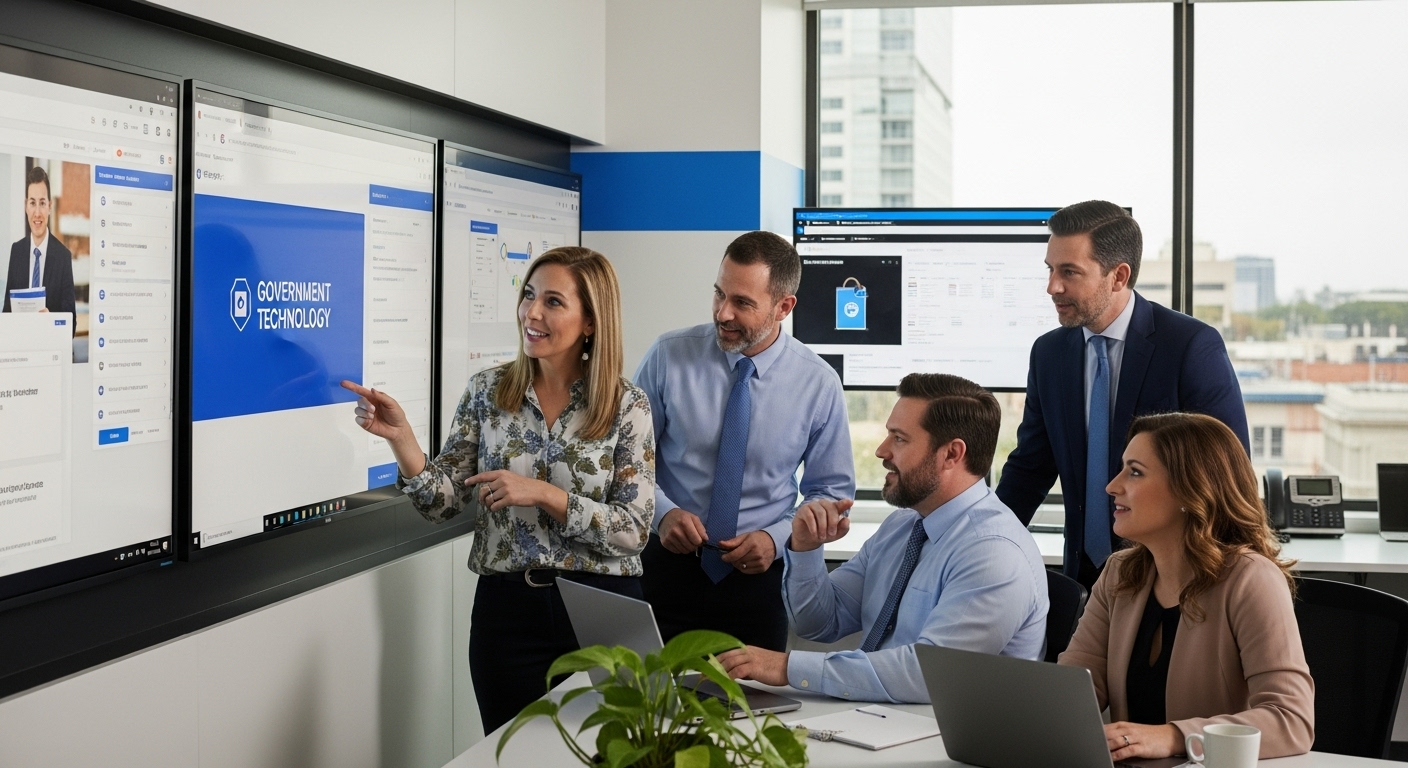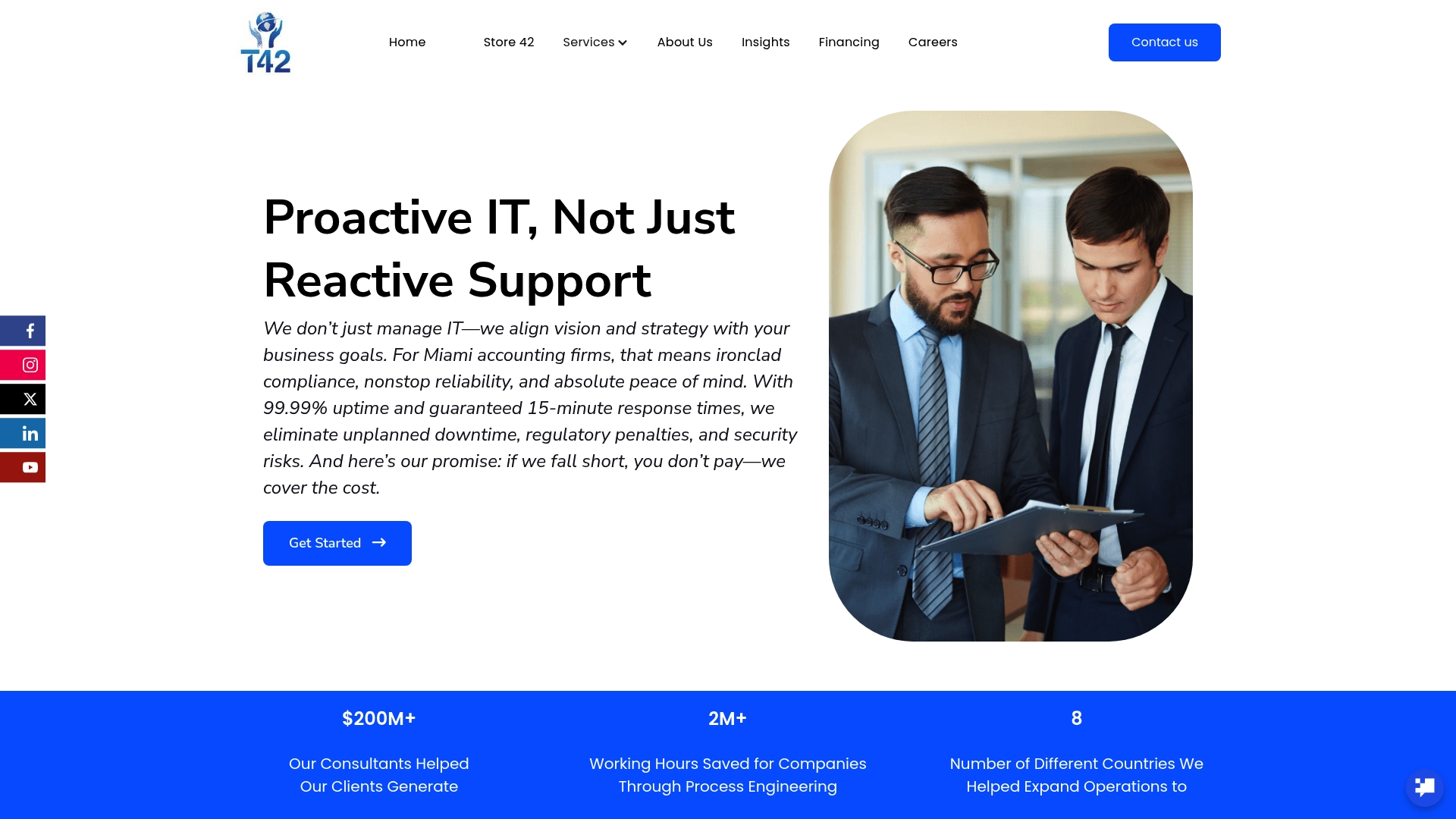
Government technology may sound dry, but it secretly powers nearly every public service you use. Get this. Digital platforms now handle real-time financial tracking and reporting for trillions in government funds every single year. Most people think these systems are just about storing records. The truth is, they’re completely transforming the way accounting professionals work and reshaping government efficiency from the ground up.
TakeawayExplanationImplement integrated digital platformsUse technology to enhance financial management and compliance in public organizations.Focus on security and compliancePrioritize robust data protection and regulatory adherence in technology solutions.Leverage AI and automationAdopt AI tools to shift from manual tasks to strategic analysis in accounting.Adopt cloud-based solutionsUtilize cloud technologies for improved data analysis and collaboration.Continuous skills development is essentialStay updated on emerging technologies to provide advanced financial services.
Government technology represents a sophisticated ecosystem of digital tools and platforms designed to transform how public sector organizations operate, communicate, and deliver services. These technological solutions go far beyond simple digital record-keeping and have become critical infrastructure for modern administrative processes.
Below is a table summarizing the primary domains of government technology and their core purposes, helping readers understand the functional scope of each domain.
DomainCore PurposeEnterprise Resource Planning (ERP)Streamline financial management and administrative tasksElectronic Reporting PlatformsEnable real-time documentation and filingCybersecurity and Data ProtectionSafeguard sensitive information and ensure complianceDigital Identity VerificationAuthenticate users and manage access securelyAutomated Workflow SolutionsOptimize and automate complex administrative processes
At its foundation, government technology aims to enhance operational efficiency, improve transparency, and create more responsive public service systems. According to Federal Research Services, these technologies support everything from basic administrative functions to complex regulatory compliance mechanisms.
Government technology typically encompasses several key domains:
What makes government technology unique is its rigorous requirement for security, scalability, and compliance. Unlike private sector technologies, these systems must meet extremely high standards of data protection, audit trails, and regulatory adherence.
Public sector technology solutions must simultaneously manage multiple challenging requirements:
Successful government technology deployment requires more than just purchasing software. It demands a holistic approach that includes strategic planning, comprehensive staff training, ongoing technical support, and continuous system evaluation. The goal isn’t just digital transformation but creating more effective, accountable, and citizen-friendly governmental operations.
In the complex world of accounting, government technology has emerged as a transformative force, revolutionizing how financial professionals manage, track, and report fiscal information. These technological solutions are no longer optional extras but critical infrastructure that enables CPAs to work more efficiently, accurately, and compliantly.
This table organizes critical features and benefits of government technology in streamlining financial compliance for accounting practices, highlighting how these capabilities directly impact CPA workflows.
FeatureBenefit to Accounting PracticesAutomated Regulatory ReportingSpeeds up compliance and reduces manual workloadsEnhanced Audit Trail DocumentationSimplifies audits and increases transparencyReduced Manual Error PotentialImproves accuracy and consistencyStandardized Financial ProcessingEnsures uniformity in financial operationsIntegrated Risk ManagementProactively identifies and mitigates compliance risks
Government technology provides accounting professionals with robust tools to navigate increasingly complex regulatory landscapes. Treasury’s Government-wide Accounting system exemplifies how advanced digital platforms can support real-time financial tracking and reporting.
Key compliance advantages include:
Modern government technology empowers CPAs to move beyond traditional spreadsheet-based accounting. These platforms integrate sophisticated data analytics, machine learning, and predictive modeling tools that transform financial analysis from a reactive to a proactive discipline.
Crucial technological capabilities for accounting practices include:
Beyond compliance and operational efficiency, government technology enables CPAs to become strategic advisors. By leveraging sophisticated digital tools, accounting professionals can provide deeper insights, anticipate financial trends, and support more informed business decision-making.
For firms looking to optimize their technological infrastructure, understanding and implementing these advanced government technologies isn’t just an upgrade—it’s a competitive necessity in today’s rapidly evolving financial landscape.
Government technology isn’t just theoretical—it’s a dynamic, practical system that solves complex administrative challenges through intelligent digital solutions. These technologies create seamless, interconnected platforms that transform how public sector organizations and accounting professionals operate in real-world scenarios.
Modern government technology functions by creating sophisticated network ecosystems that enable seamless data exchange and communication across different departments and systems. According to Government Accountability Office research, these interconnected systems dramatically improve operational efficiency and reduce administrative redundancies.
Key integration features include:
Government technology manifests in diverse practical scenarios that directly impact accounting and financial management. For instance, an integrated tax reporting system might automatically validate financial submissions, cross-reference historical data, and flag potential discrepancies before human review.
Real-world application domains encompass:
The most critical aspect of government technology is its robust security infrastructure. These systems are designed with multiple layers of protection to safeguard sensitive financial information, ensure data integrity, and maintain strict regulatory compliance.
For firms seeking to explore advanced technological solutions, understanding these intricate technological ecosystems is no longer optional—it’s an essential component of modern accounting practice. Government technology represents a powerful toolkit that transforms traditional financial management into a more intelligent, responsive, and secure discipline.

Government technology for accounting professionals represents a sophisticated ecosystem of digital tools designed to transform financial management, compliance, and strategic decision-making. Understanding these key concepts and tools is essential for CPAs seeking to leverage technology effectively in their professional practice.
At the core of government technology are integrated digital platforms that provide comprehensive financial management capabilities. According to Financial Research Services, these technological frameworks enable unprecedented levels of data analysis, reporting, and regulatory compliance.
Key foundational concepts include:

Modern government technology equips accounting professionals with powerful tools that go beyond traditional record-keeping. These sophisticated solutions transform CPAs from number crunchers to strategic advisors, providing deep insights and predictive capabilities.
Critical technological tools encompass:
Successful adoption of government technology requires more than just purchasing software. CPAs must develop a holistic approach that includes continuous learning, strategic planning, and an adaptive mindset towards technological innovation.
For professionals looking to explore cutting-edge technological solutions, understanding these tools isn’t just about technical proficiency—it’s about reimagining the role of accounting in an increasingly digital world. The most successful CPAs will be those who can effectively navigate and leverage these powerful technological ecosystems.
The landscape of government technology is rapidly evolving, presenting both unprecedented opportunities and complex challenges for accounting professionals. As digital transformation accelerates, CPAs must anticipate and adapt to emerging technological trends that will fundamentally reshape financial management and regulatory practices.
Artificial intelligence is poised to revolutionize government accounting processes. Government Accountability Office research indicates that robotic process automation will dramatically transform routine financial tasks, shifting the CPA’s role from manual data processing to strategic analysis and oversight.
Key AI-driven transformation areas include:
Government technology is moving towards more integrated, cloud-based platforms that enable unprecedented levels of data analysis and collaboration. These systems will empower CPAs to provide more nuanced, forward-looking financial insights by leveraging comprehensive data ecosystems.
Emerging technological capabilities encompass:
Successful CPAs will need to continuously update their technological skill sets, transforming from traditional number crunchers to strategic technology interpreters. This means developing competencies in data science, cybersecurity, and emerging digital platforms.
Explore the latest digital transformation trends to stay ahead of the technological curve. The most adaptable accounting professionals will be those who view technological change not as a challenge, but as an opportunity to deliver more sophisticated, value-driven financial services.
You have just learned how government technology redefines efficiency and compliance for CPAs. Still, navigating strict regulations and protecting sensitive financial data creates daily worries for Miami accounting firms. What if you never had to waste time fixing tech failures or chasing after audit trails? Imagine an environment where operational reliability and ironclad security are guaranteed, freeing you to focus on your clients and growth. At Transform42, we bridge the gap between complex technology and the peace of mind you deserve.

Take action today. Visit our homepage for solutions designed for Miami CPAs who refuse to compromise on uptime, compliance, or data security. Experience the promise of nonstop support and a 99.99 percent uptime guarantee. If we fall short, you do not pay. Let us help you master government technology and unlock new possibilities.
Government technology for CPAs typically includes enterprise resource planning (ERP) systems, electronic reporting platforms, data analytics tools, and automated compliance verification mechanisms. These technologies enhance operational efficiency and support financial management.
Government technology streamlines compliance by offering automated reporting, enhanced auditing capabilities, and standardized financial processing protocols, which significantly reduce the risk of manual errors and improve regulatory adherence.
Cloud computing enables CPAs to access integrated, cloud-based platforms facilitating real-time data sharing, advanced analytics, and collaborative accounting practices that enhance decision-making and financial oversight.
Effective implementation requires a holistic approach that includes strategic planning, continuous training, ongoing support, and an adaptive mindset to leverage emerging technologies that enhance financial management and compliance.